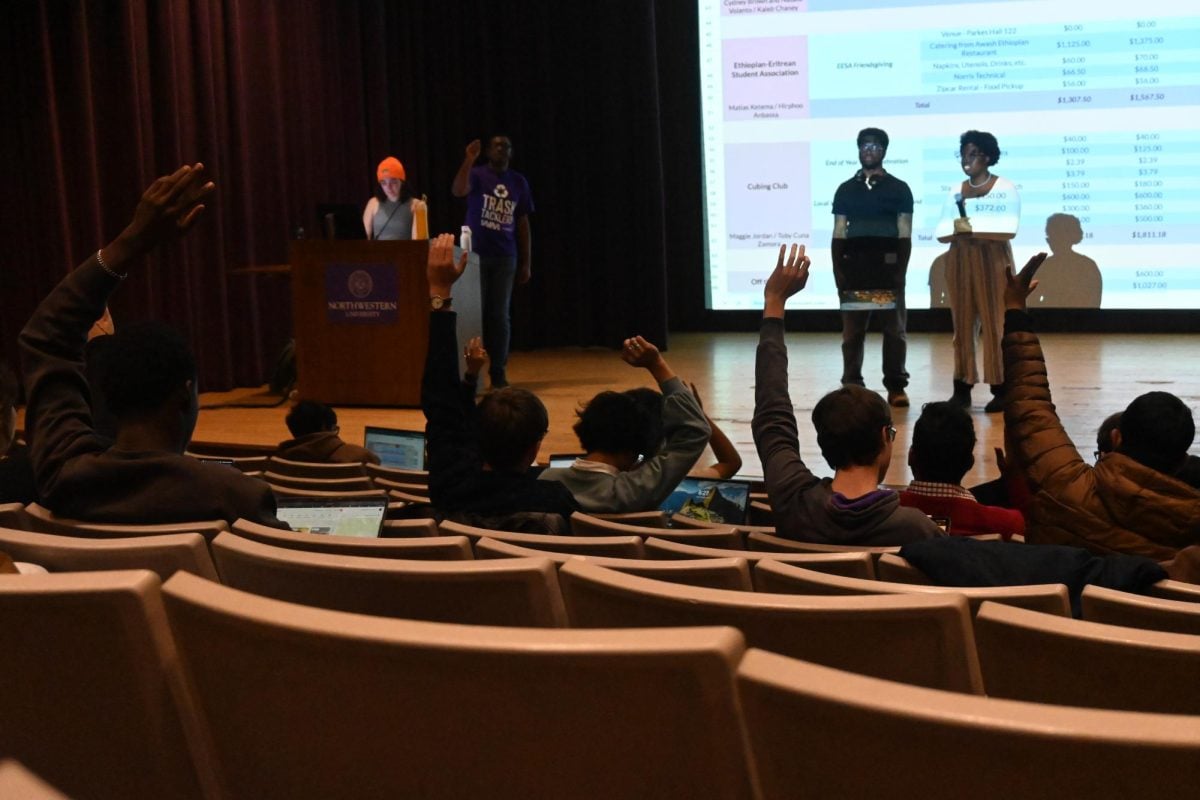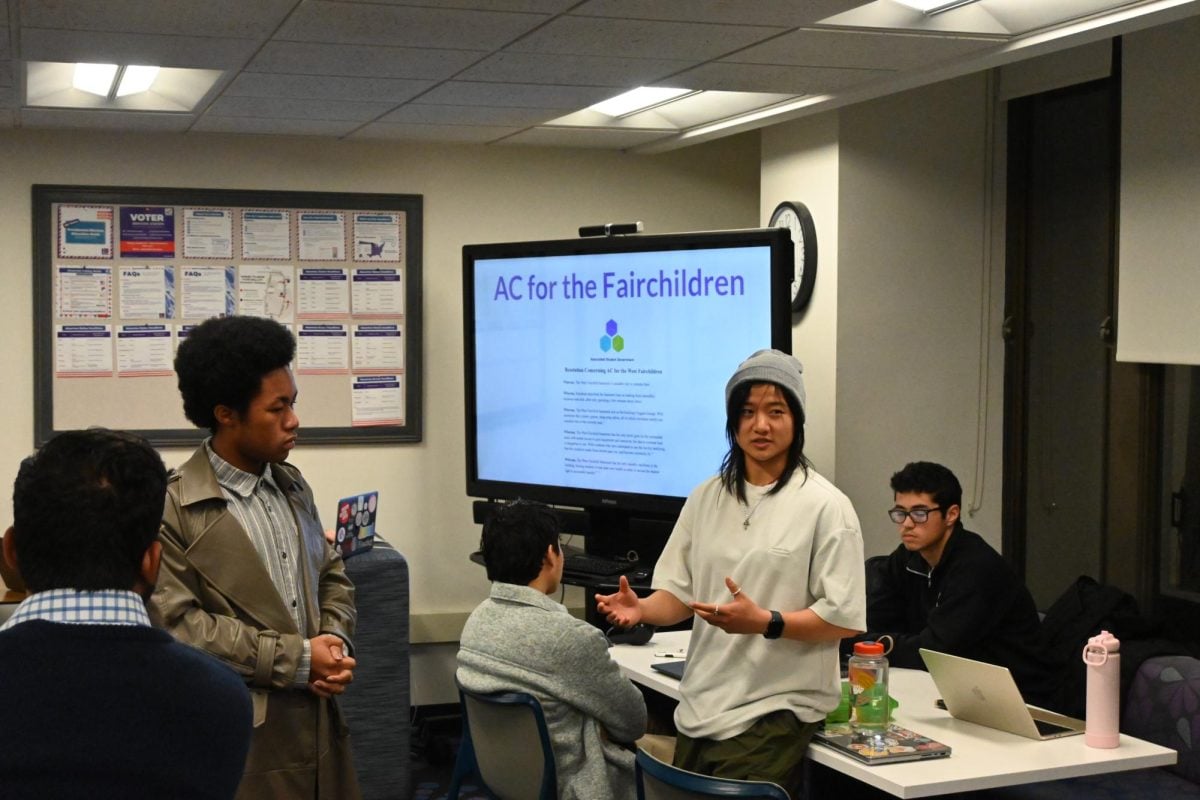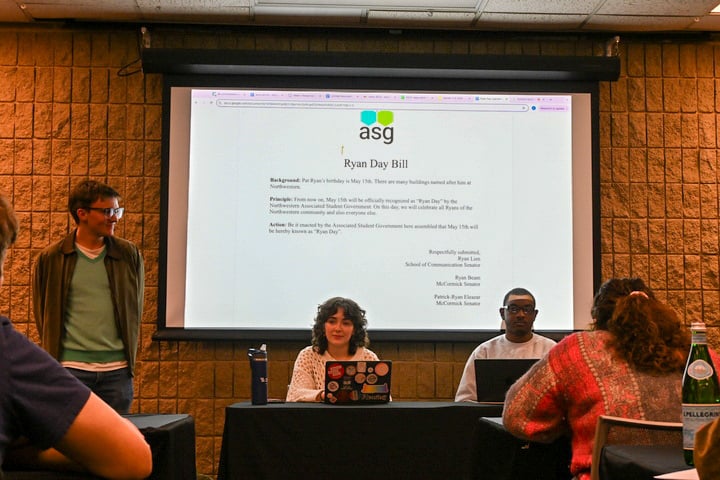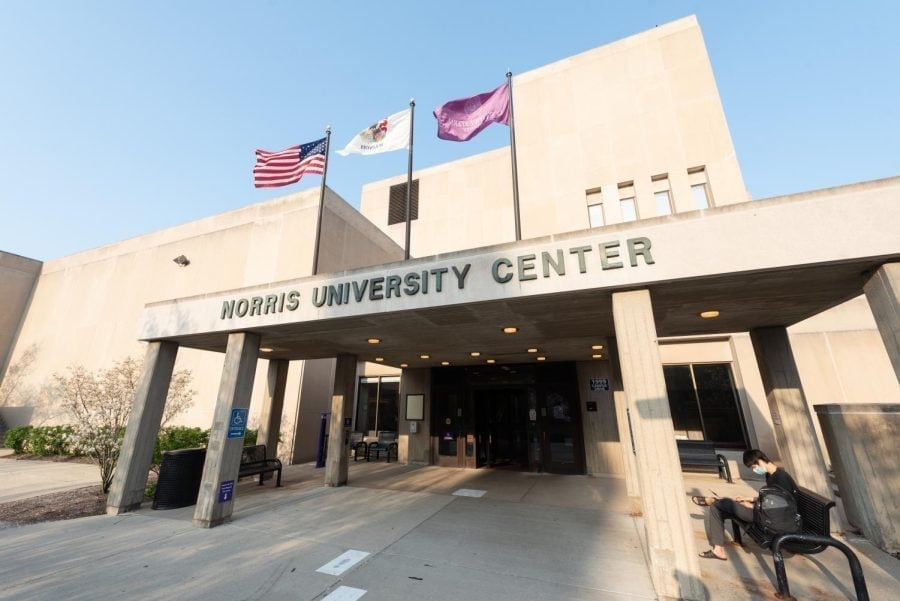ASG held an open forum Monday to discuss the contested issue of Senate reform. The task force created about three weeks ago presented proposed legislation that cuts Senate from 49 to 34 senators.
“It’s such a dynamic meeting today. With non-ASG, non-media, we have three people,” ASG President Austin Young joked about attendance.
Still, the Weinberg junior said, “We’re excited to share a little bit about all the work we’ve put in.”
The bulk of the bill deals with reducing the size of Senate. If the proposal passes, the Greek Caucus will be reduced to three senators, the Off Campus Caucus to five, the RHA/RCB caucus to 10 and the Student Groups Caucus to 11.
This bill comes after months of proposed reform.
“We tried to do it again having had two quarters’ worth of legislation and experiences,” said Speaker of the Senate Wilson Funkhouser, a Weinberg junior. “We tried to combine all of those to make what we thought was a feasible yet effective change to Senate.”
The legislation also seeks to improve the accountability of senators, specifically in the Student Groups Caucus, said ASG Vice President Ash Jaidev. If a senator position is vacant for more than two weeks in a row, his or her student group would lose the ASG seat for the rest of the year and another group would be selected to fill the spot.
“That effectively makes sure senators actually show up and student groups remain engaged on a day-to-day basis,” Jaidev, a Weinberg junior, said.
Though the bill reduces the size of Senate, its purpose is actually to give more student organizations greater access to ASG. According to the legislation, every student group seeking a seat would have to apply each fall to a new body, the Student Group Apportionment Committee. Furthermore, ASG would encourage student groups to join with other groups that “represent similar interests,” applying together to share one seat.
“The point of the senator is to serve as a bridge between student groups and students and ASG,” Funkhouser said. “So the more people we have to go between there, the better.”
The task force had not discussed whether there would be a maximum number of groups allowed to share a seat. The process would be entirely up to the student groups and what they write on their applications, Jaidev said. Any ASG-recognized organization, regardless of A-, B- or T-status, could apply.
“The fact that we’re cutting down from 15 to 10 is not to suggest that fewer groups can get representation but that more can get representation,” Jaidev said. “What this measure was trying to do was open Senate up to anyone who would like representation, or at least have the chance to ask for it.”
However, some senators questioned this provision. Senator Tyris Jones, a Weinberg junior, said he worried teaming up would actually restrict senators and be unfair to groups that have already demonstrated they deserve seats.
“Groups that have a very distinct movement are going to be punished,” Jones said. “How much clout is going to go to groups who team up versus groups who have a long-standing history with ASG?”
Northwestern Community Development Corps co-chair Kathryn Anderson, a SESP junior, said established organizations are already feeling the heat.
“I guess the reason so many student groups are nervous is that is a new thing,” she said. “The criteria might be improved, but it’s difficult and it’s scary as a student group to feel that we might lost our representation because we’re not pairing up with the right people.”
Still, Jaidev noted grouping together on applications would be just one of many criteria for seat appointment. Funkhouser said the applications have not been written yet and stressed the committee would consider potential rather than prior participation.
“Honestly, I think that it’s a bad thing to account for how groups have used seats in the past when you’re making a decision about who will get a seat,” Funkhouser said. “That is giving an unfair boost to people who have had a seat for a long time, whereas if you judge instead on how a group is able to use a seat effectively.”
Despite the concerns, Funkhouser said the bill is a general framework for reform whose details can be worked out.
“Do we see this as a final place for ASG to be? The way to answer that is, ‘OK, Senate itself six years ago used to be like 80 people and we’ve changed the number around over the past two decades,'” he said. “I venture a guess that every time we thought, ‘This will be the best Senate,’ but issues happen. Things change and that’s the point here.”






